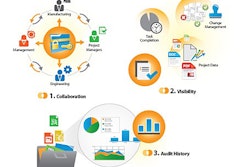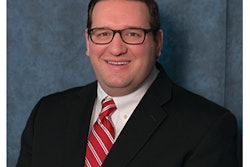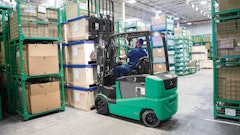April 01--When Sheryl Wamsley came to St. Joseph Medical Center 12 years ago, drug shortages were rare.
"Now we talk about it daily, and we talk about multiple shortages," said Wamsley, pharmacy clinical coordinator for the hospital.
Wamsley doesn't have to deal with shortages of critical drugs often, but there still are hundreds of ongoing shortages she, her staff and suppliers need to manage behind the scenes so patient care isn't affected.
Drug shortages can be a significant risk to public health and can disrupt medical care. To handle the issue, hospitals have added backup inventory of important drugs, restricted use of certain drugs and found alternative medications.
Nationwide, the shortages have delayed and canceled medical procedures, increased the risk for errors and cost medical providers, according to a Premier Healthcare Alliance report about drug shortages. Premier is a Charlotte, N.C.-based alliance of 2,900 U.S. community hospitals.
Locally, drug shortages haven't affected surgeries or patient care, but staff are spending more time coming up with solutions and educating fellow staff.
When preferred medications run low, Reading Health System's pharmacy employees identify alternatives to make sure care isn't compromised, said Dr. Robert Jones, chief of infectious diseases and chairman of the pharmacy and therapeutics committee for Reading Health System.
New drug shortages started increasing significantly in 2007, peaked in 2011 and decreased by almost half by the end of 2013, according to the American Society of Health System Pharmacists. Manufacturing problems, increased demand and issues with raw material sourcing have caused shortages in drugs, from psychiatric medications to common drugs like antibiotics and electrolytes. While there are fewer new shortages reported, ongoing drug shortages remain for more than 300 drugs.
Pharmacists, nurses and medical staff have worked to make sure patients receive the necessary care, said Joseph Hill, director of federal legislative affairs and assistant director of government affairs for the American Society of HealthSystem Pharmacists. They're spending time at internal meetings talking about short supplies, finding alternatives and contacting suppliers and manufacturers.
Shortages don't necessarily mean a pharmacy is out of a drug.
At Reading Health System, shortages include when pharmacy employees notice supplies are not as plentiful and could affect patient care, said Director of Pharmacy John Mercer.
It's not uncommon for a particular antibiotic or generic injectable drug to be in short supply, but drug shortages have increased in the past number of years.
"This really isn't anything new, but in the last five years it's become more profound," Jones said.
Some drug shortages are more critical because they're used by so many patients. In the past few weeks, Reading Hospital has seen a shortage of saline. Any patient with an IV uses saline; that's nearly every patient at the hospital, Jones said. Reading Health System uses about 2,000 bags of saline a week.
To handle the shortage, the system researched which departments use the most saline and looked for alternatives. The health system normally buys IV drugs through a distribution center, but recently it has gone directly to manufacturers to make sure the orders keep coming.
Local hospitals may have to resort to a medication used before the short-supply drug was available or a different form, such as an injectable or oral version. Sometimes an alternative drug in the same class can be substituted. If there are few alternatives, then supplies are restricted.
St. Joseph Medical Center recently saw shortages of electrolyte replacements, important for dehydrated patients. After the Food and Drug Administration allowed imports from Europe, the hospital restocked supplies.
The pharmacy department receives calls and faxes offering hard-to-find drugs, but the hospital only purchases through pedigree drug manufacturers and its wholesaler, Wamsley said.
Along with finding alternative drugs, the pharmacy staff needs to work with doctors and clinical staff to make sure they know what alternatives are available and how they should be used.
Early detection is key. If there is a notice about a shortage, Reading may increase the supply or order more frequently, Mercer said.
Drug shortages have dropped, partially because of a law enacted in 2012 requiring early notification about shortages, said Hill, the lobbyist for the pharmacists group. The FDA also has more resources to focus on the issue, but there are more shortages coming up.
"What we're hearing is a lot of these generic (drug) companies are reinvesting in new technology and new facilities, but it's going to take some time before they're fully operational," he said.
Contact Erin Negley: 610-371-5047 or [email protected].
Copyright 2014 - Reading Eagle, Pa.












![Pros To Know 2026 [color]](https://img.sdcexec.com/mindful/acbm/workspaces/default/uploads/2025/08/prostoknow-2026-color.mduFvhpgMk.png?ar=16%3A9&auto=format%2Ccompress&bg=fff&fill-color=fff&fit=fill&h=135&q=70&w=240)


